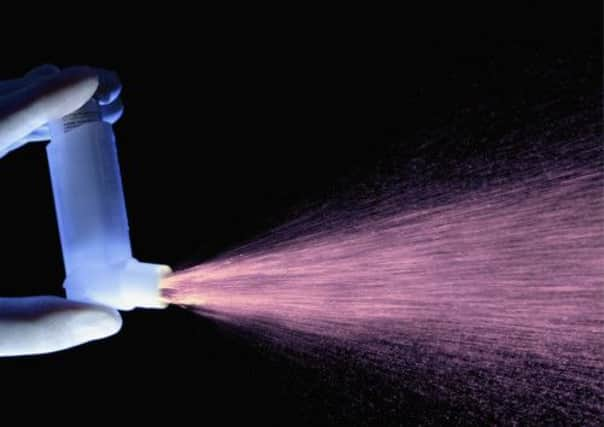Women more likely to suffer allergies and asthma


Scientists set out to uncover which is the healthiest sex when it came to allergies and whether one sex was genetically at higher risk of developing chronic allergic illnesses.
Speaking in a presentation at the Annual Scientific Meeting of the American College of Allergy, Asthma and Immunology (ACAAI), allergist Dr Renata Engler said they had found that adult women are at higher risk of allergies, asthma and similar diseases compared to adult men.
Advertisement
Hide AdAdvertisement
Hide AdThis was despite the fact that young boys had higher rates of these conditions than young girls.
Dr Engler said: “More prepubescent males have rhinitis, asthma and food allergy than females. However, roles change. When females enter young adulthood, they outnumber men in these chronic illness categories.”
The meeting in Baltimore heard that the reasons for gender differences in the risk of disease and immune responses were complex and varied with age.
Scientists hope their findings will improve the understanding of the impact of the different sexes on diagnosis, treatment and outcomes.
They said that the important message was that in order to have better individual care for patients, improved understanding was needed of different gender’s effect on diagnosis, treatment and outcome for sufferers.
They said the “one size fits all” approach was not the best for patients.
Dr Engler added: “The importance of sex differences in the practice of allergy-immunology cannot be overstated. Improved sex/gender-based medicine and research practices will benefit men and women alike.”
Genetics play an important role in determining who will develop allergies and asthma and if parents have either of these chronic illnesses, their children are at an increased risk, the meeting heard.
Advertisement
Hide AdAdvertisement
Hide AdDr Engler, an ACAAI fellow, said personalised medicine was about more than just what was in the genes. Because allergy and asthma manifest in each person differently, it is important sufferers see an allergist.
Proper treatment involves more than just relieving symptoms, but finding the source of the suffering and developing individual care plans to avoid symptom triggers.
Another study by a team from the ACAAI, which tracked women’s chances of suffering serious asthma-related complications as they entered menopause, found women in their 40s and 50s were more likely to be admitted to hospital with the condition compared to men of the same age.
In Scotland, around 368,000 people – one in 14 – are currently receiving treatment for asthma. This includes 72,000 children and 296,000 adults.
There are around 100 deaths due to asthma in Scotland each year, despite improving treatments.